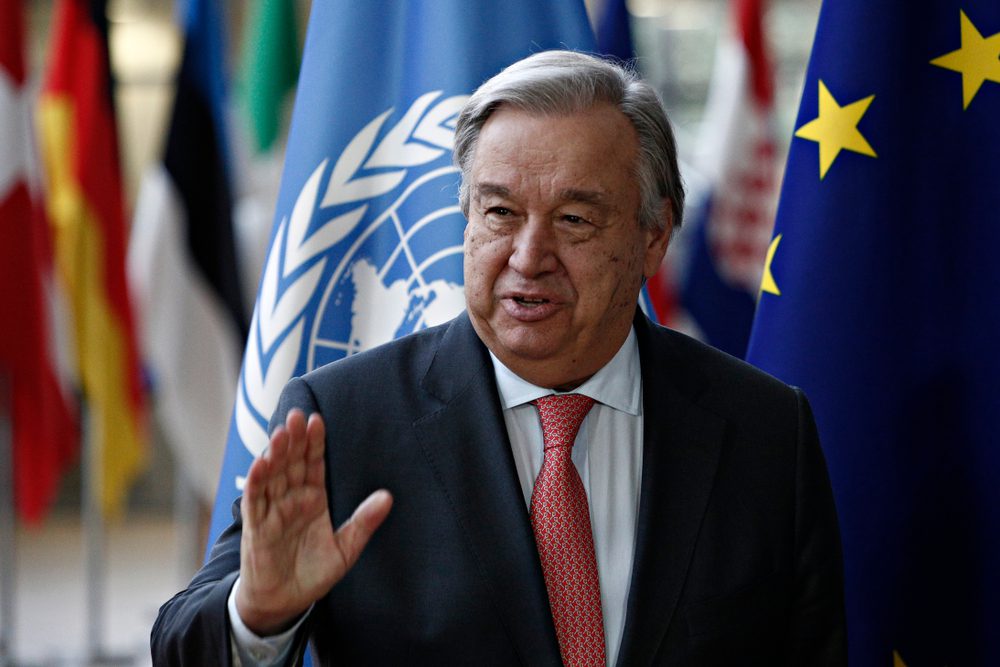
Secretary-General Antonio Guterres
It is time to reform both the Bretton Woods System and the United Nations’ Security Council to align with the “realities of today’s world,” UN Secretary-General Antonio Guterres said during a press conference at the Hiroshima G7 Summit on Sunday, May 22nd.
According to the Secretary-General, neither of the institutions are suitable vehicles to address current geopolitical challenges, since both were created to address the post-WWII power balance.
“The global financial architecture became outdated, dysfunctional, and unfair,” Guterres said, arguing that “in the face of the economic shocks from the COVID-19 pandemic and the Russian invasion of Ukraine, it has failed to fulfil its core function as a global safety net.”
Guterres explained that the financial overhauls are primarily meant to address the growing frustration of the Global South; a region of nations experiencing some of the most rapidly expanding economies, but whose needs have been neglected by the developed nations.
“There is a systematic, unjust bias in global economic and financial frameworks in favor of rich countries, which is naturally generating great frustration in the developing world,” the Secretary-General said, adding that “from a moral point of view, there is something fundamentally wrong with the rules themselves.”
To give an example, Guterres referred to the way some countries implemented recovery plans following the pandemic’s economic fallout. He recalled that Western nations “basically printed” trillions to mitigate the effects—something that was not an option for other nations without the risk of catastrophically devaluing their currencies.
For the over fifty countries that are either defaulted or in serious risk of default right now, many of whom do not qualify for international debt relief measures, the diplomat said, reforming the entire financial system is their only hope.
But also, the reforms would have to accommodate the needs of the fastest growing economies of the Global South as well (such as India or Brazil), recognizing their rising geopolitical significance. It’s easy to see why: the global share of G7 countries’ combined economic output has shrunk from 50% in 1980 to less than 30%, while China and India will account for half of the economic growth between them by the end of 2023.
This is also why India’s President Modi and Brazil’s Lula were invited to this year’s G7 summit, where quite a few talks focused on “effective polic[ies] of solidarity” that would benefit the Global South. “We will see now what … the G7 members were able to discuss with some of the most important emerging economies in the world,” Guterres said.
However, apart from reiterating a few times that the international financial system needs to be systematically reformed, the Secretary-General did not go into any further details about the specific nature of those reforms.
One can stipulate, however, where this discussion may lead.
If it’s assumed that by ‘Bretton Woods’ Guterres meant the U.S. dollar’s role as global reserve currency (since the 1945 agreement’s original purpose to peg the dollar to gold has been abolished in the 1970s), some of these reforms could very well refer to emerging plans to establish centralized cryptocurrencies, also known as Central Bank Digital Currencies (CBDCs).
Some of the most promising CBDC projects currently include the European Central Bank’s ‘Digital Euro,’ the Federal Reserve’s digital dollar, and the International Monetary Fund’s ‘Universal Monetary Unit’ (UMU), unveiled last month, specifically for global use.
It’s without a doubt that these systems could have quite some benefits, but as many critics point out, they also open up the opportunity for unprecedented abuse of power from governments and international authorities.
Guterres did not specifically address CBDCs or anything similar, but sometimes it is worth listening to what’s not being said out loud.
CBDC – In a sting operation the President of the ECB was tricked into revealing that EU CBDC would be be government controlled
— Bernie's Tweets (@BernieSpofforth) April 7, 2023
In preparation they squeezing cash out with limits on spending at €1000.
Imagine when they control every Penny you spend!
pic.twitter.com/u8cMH8sMvQ
